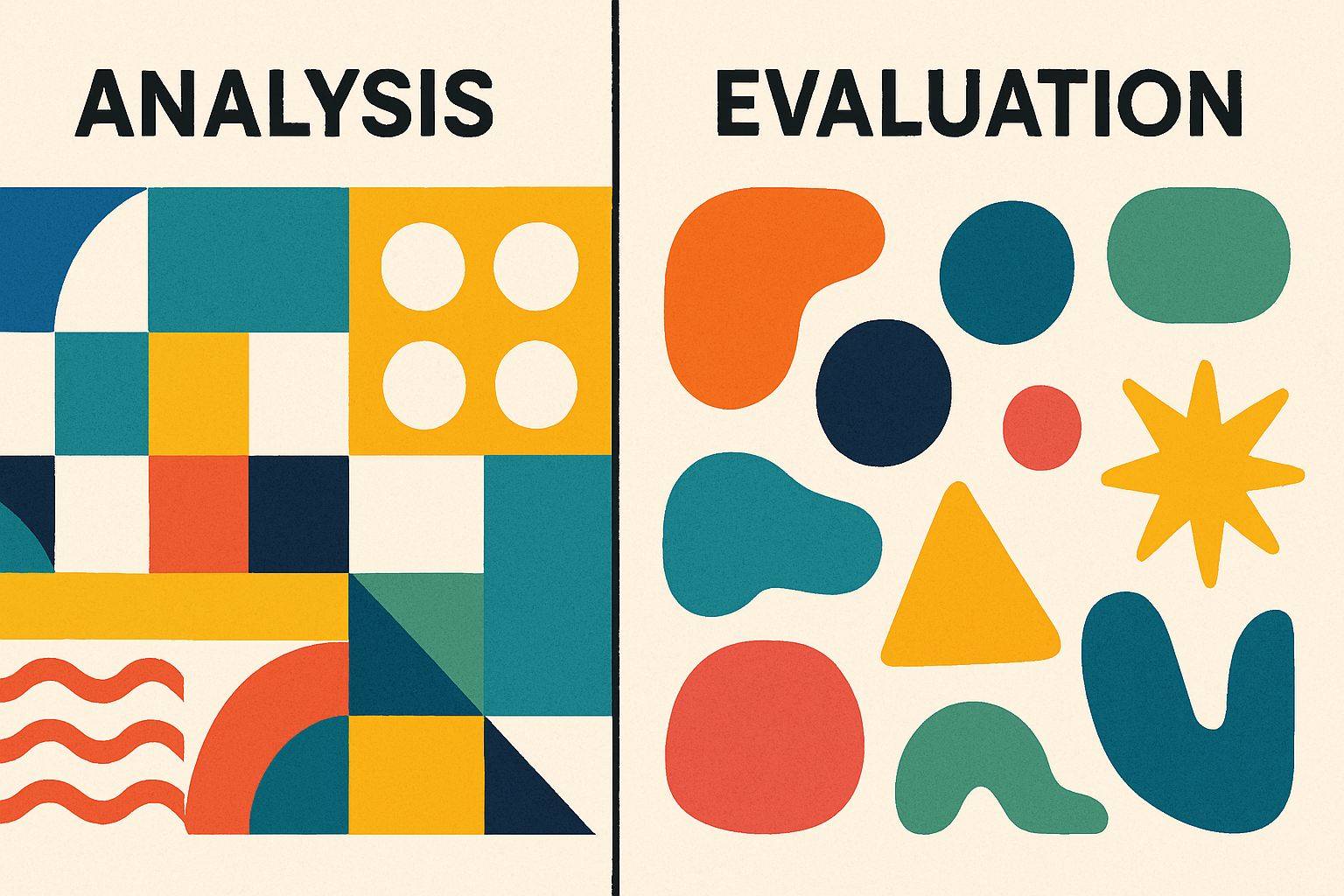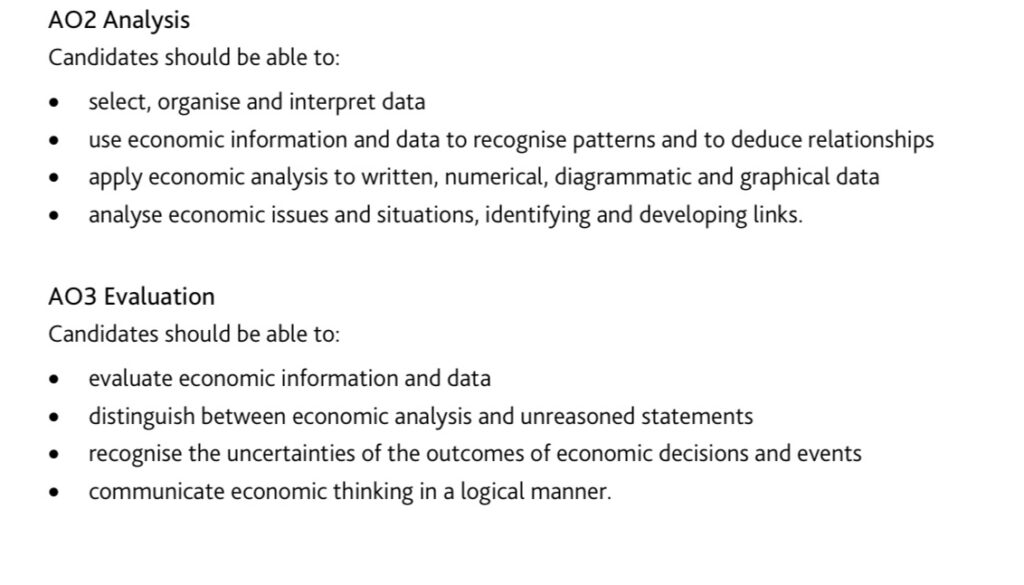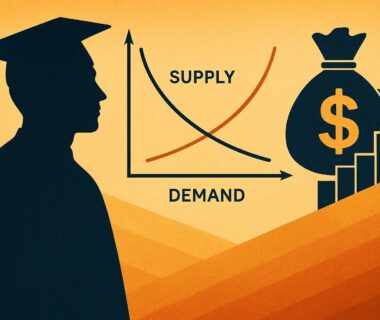Hello Sepupus one and all!
Fun little blog post today. I’ve been meaning to talk about this for a while but a lot of syllabus planning and a whole range of other things got in the way.
But here we discuss for you right now the relationship between education and economics.
Whether you realize it or not, these two are linked with one another in an inextricable fashion, and it doesn’t matter that you don’t take economics at all because it remains true.
In this blog post, I hope to show you the outlines of the picture and help you understand how everything connects together in what some might say is a grand design, but what others might very easily and rightfully say is just “how the world works”.
Ready? Let’s go!
Now it’s no secret that in this blog you’re going to find a whole range of maximum value packed resources for education. Specifically you’ve got a range of different resources for IB, IGCSE, A-levels and everything out there.
Some of you out there who are of the opinion that education shouldn’t be linked to a particular syllabus, shouldn’t be linked to curricula, want to abandon your college degrees right now and go out and become heroes of the new liberal universe. Well you might want to read this and read it closely.
When we talk about education, it is easy to just think of it as a process of making people learn, and indeed, that’s very much what it is.
Education is for training.
In search of that training, students enter classrooms by the dozens, the hundreds, the thousands, and the millions, depending on whether you’re talking about the scale of a single classroom, a school, a country, or in turn, the world, to get training on language, mathematics, the sciences, history, and any number of other things in the service of an educational program, whether that of a nation aiming to shape its identity and build up a competent generation able to compete in the world or a private initiative that aims for the same, getting that parents will seek the very best possible outcomes with the resources that they invest into as they test out their philosophy of what is correct, proper, and necessary for the whole advancement of a child.
Isn’t it wonderful that people are so dedicated to self-improvement?
That they would all automatically and out of the goodness of their own hearts direct their kids to go through academic torture all in the name of gaining wonderful skills in the modern world for their self-empowerment?
Well, you might think that, but in most parts of modern society—no matter what country you live in nowadays—If you have children below the age of 18, and you don’t send them to school and have no valid reason, you will be fined, you may be arrested, and child and social services may arrest you — this is because
Education is not just training; it is also legally required.
In other words? The state takes an interest in whether you train your child or not; negligence of your child’s education is in fact against the law.
Is it just a matter of the law though?
Well, as it turns out, no. That’s just one part of it. Because if parents were just coerced to bring their kids into schools against their will, you could imagine there being an entire generation of people just malingering, doing the bare minimum in order to help their kids not become prison liabilities for them.
The reality, however, is infinitely more complex and interesting than that.
Rather than just doing the bare minimum, parents engage in incredibly complex stances to ensure that their children not only enter the education system but thrive within it by an act of willing volition.
But before you come up with your fanciful speculations about what is and what is not, no, it is not by pure altruism that this happens and it is not on account of a mere game.
Education not only trains, but it also certifies.
This one has a college degree – good! He has certain basic skills! Wow! This one graduated from a top university. Amazing! He must be really smart! Wow, this one reads Sepupunomics and also took IG, A-levels and IB economics. He must surely know a lot about economics!
What’s the corollary of that?
Education not only certifies but it facilitates selection.
It is probably easiest to show you what I mean with an example.
Wow! We have so many qualified scholarship applicants, but only one scholarship to give. Hey! She got 10 A*s for her IGCSEs and we have one scholarship and everyone got 9A*s and one A and only 20 minutes to decide before clock out at 5pm. Let’s pick her!
Hey! We need some really smart people to work on our very sensitive project and we only have one hour to get through all the resumes before saving the world from Thanos! What do we do?
Oh, the University of Chicago is renowned for smart people – hire him! (Sorry had to glaze my alma mater there LOL)
And what’s the corollary of all that?
Beyond teaching you about choice, giving you inspiration, cultivating the way that you think, make decisions, articulate yourself, and develop skills and develop skills that are important not only for functioning in the adult world but also in day-to-day life, education also shapes how other people make choices about you — Not only by certifying you but also providing mechanisms for training and assessing you across all relevant dimensions, which is what educational programs like the IGCSE A-levels, IB, and the whole smorgasbord of different economics courses you may encounter later in university may present to you, to not even speak about the ways that people can make inferences about whether you are educated or you are not from the way that you speak, the way that you articulate yourself, the topics that you raise, and the ideas that you communicate with the world.
On these dual levels then, and in respect to the scarcity that we all share in both of time and money and a whole range of other resources that none of us have an infinite amount of.
Education is inextricably linked with the economics that you are studying — Either formally if you’re taking one of the educational programs I mentioned earlier or otherwise or informally if you are just reading this and nodding along.
Isn’t it lovely and meta to think about how by studying economics you learn about choice, and right now in reading this blog post you’re learning about how you are learning about choice?
It’s almost like that John Green novel about turtles all the way down, except now this is economics and we are talking about choices all the way down and how they all take part in a common framework that can’t be separated from society and the real world as it stands.
Whether it’s for training and you can’t get out of it because of the law, you’re seeking certification or in turn trying to be selected. It’s clear that education interfaces with economics in all too many critical ways.
We would not pay the doctor who has no medical degree, nor would we hire someone who doesn’t have the right skills. It doesn’t make sense on both of those counts, and in both counts, the ostensible problem is a lack of education, whether in providing the certification that the doctor can actually perform the operation or in the vibe check that affirms that the person who’s trying to get a job from you is actually someone worth while speaking to or listening to.
When we move beyond that abstraction, it becomes easier to understand.
If you pay this doctor and not an educated doctor, you lose your money — Not only might it be the case that your disease won’t be cured, but if he prescribes you the wrong medicine or does the wrong kind of treatment, you could become even more ill and in the worst case die. If you hire someone who doesn’t have the skills or doesn’t have the learning a bit of someone who needs to master a very difficult field in a very short amount of time, the money that you pay out every single month to put them in the job that you might put them in would actively be a drain on company expenses with no measurable benefit.
Look through and understand our economy and the way that we provide and receive services, instruction, training, and guidance in all of its forms, and there you will see — In every industry and in every way, the dynamics of scarcity, choice, education, and decision come into play in a symphony that even if you cannot directly tease apart, you engage in playing a role, even if you are not conscious of it.
Alright, and that’s all for today. I’ll see you guys in the next one!


